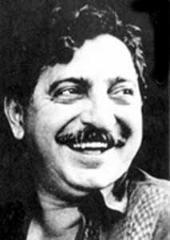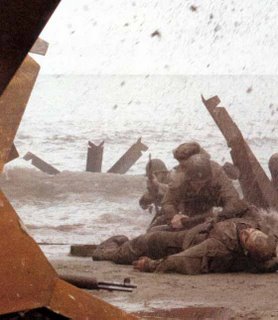Veramente mi dispiace ma oggi devo scrivere sul modelo economico della Spagna, quello che io chiamo l'economia del cemento, perché tutto nasce della costruzione. Lo so, questo non risulta molto divertente ma è il mio blog e decido io.
Nel mio lavoro ho visto molte comparazioni tra l'economia spagnola e le economie europee e la situazione non ci favorisce. La costruzione ha un'importanza nella nostra economia che non ne ha in altre paesi, che hanno un'struttura industriale forte. Spagna costruisce più alloggi che Francia, Germania ed Italia insieme. Questo è matematicamente insostenibile, non ci sono tantissimi spagnoli per occupare tutto quello che si costruisce.
Adesso c'è un "boom" che fa che si costruiscano e si comprino molte alloggi, ma se la congiuntura cambia, potremmo avere un piccolo Giappone nel Sud d'Europa. Nel 1990, nel Giappone, c'è stata una crisi e le banche hanno preso molti alloggi, perchè i giapponesi non potevano pagare le ipoteche dopo una salita degli interessi. Era meglio, da un punto di vista financiario, non pagare l'ipoteca e perdere la casa che lo contrario. Cosa fa una banca con una casa? Niente! Oggi il tasso d'interesse nel Giappone è 0,5% e l'economia è ancora in recessione. Le banche sono anche le maggiore proprietarie d'alloggi.
La congiuntura attuale in Germania (motore d'Europa) dovrebbe salire il tasso d'interesse nella Unione Europea. L'Euribor è salito ancora alcune decimi e questo ha significato in Spagna una calo delle spese in cinema, ocio, ristoranti,... Le familie non hanno soldi per spendere perchè l'ipoteca è salita. E si un paese non spende, l'economia crolla prima o dopo.
Ecco le mie paure sull'economia spagnola. Verremmo se il tempo mi da ragione.
Blog de Antonio Sánchez, economista de Guadalajara. Aquí iré mostrando mis opiniones sobre una gran variedad de temas. Normalmente usaré el castellano, pero en ocasiones, según se dé el día o el tiempo que tenga, usaré otros idiomas (inglés, italiano, alemán o francés).
Saturday, September 30, 2006
Sunday, September 24, 2006
Chico Mendes
Uno de los libros que más me han marcado como persona y con cuya lectura más he disfrutado es "Senderos de libertad" de Javier Moro (http://www.seix-barral.es/fichalibro.asp?libro=510), donde se describe la lucha de los recolectores de caucho en la profunda selva amazónica por salir del feudalismo que los terratenientes les imponían. A la cabeza de esta lucha se sitúa Chico Mendes (http://en.wikipedia.org/wiki/Chico_Mendes), en torno al cual gira el libro.
Más allá de la calidad literaria del libro, nos encontramos con una auténtica bofetada a la sociedad del siglo XX. Se nos describe, sin ningún tipo de rodeos, la vida en la selva amazónica, las falsas promesas de prosperidad, la impunidad de los poderosos, el olvido más absoluto en que vivían los caucheros (algunos de ellos tenían dificultades para hablar), la indiferencia de quienes no podían ser indiferentes (autoridades e Iglesia),... Y todo ello en nuestro siglo XX, todo un sistema feudal montado delante de nuestras sociedades ultratecnológicas, en el patio de nuestras casas. Únicamente la lucha de estos hombres (pagada en muchos casos con la vida), sabiendo que en su propio analfabetismo y aislamiento radicaba el poder de los terratenientes permite salir a los caucheros de su esclavitud.
ningún tipo de rodeos, la vida en la selva amazónica, las falsas promesas de prosperidad, la impunidad de los poderosos, el olvido más absoluto en que vivían los caucheros (algunos de ellos tenían dificultades para hablar), la indiferencia de quienes no podían ser indiferentes (autoridades e Iglesia),... Y todo ello en nuestro siglo XX, todo un sistema feudal montado delante de nuestras sociedades ultratecnológicas, en el patio de nuestras casas. Únicamente la lucha de estos hombres (pagada en muchos casos con la vida), sabiendo que en su propio analfabetismo y aislamiento radicaba el poder de los terratenientes permite salir a los caucheros de su esclavitud.
Personalmente, el libro me ha abierto los ojos a muchas cosas: i) las injusticias olvidadas que aún persisten en nuestra sociedad ultratecnológica, ii) la impunidad y corrupción de los círculos del poder, sobre todo en el Tercer Mundo (otro ejemplo, nos los dan los "bloody diamonds"), iii) el analfabetismo es el mayor enemigo del hombre, pues le hace fácilmente manipulable, iv) para mejorar nuestra situación, únicamente contamos, a priori con nosotros mismos,...
Más allá de la calidad literaria del libro, nos encontramos con una auténtica bofetada a la sociedad del siglo XX. Se nos describe, sin
 ningún tipo de rodeos, la vida en la selva amazónica, las falsas promesas de prosperidad, la impunidad de los poderosos, el olvido más absoluto en que vivían los caucheros (algunos de ellos tenían dificultades para hablar), la indiferencia de quienes no podían ser indiferentes (autoridades e Iglesia),... Y todo ello en nuestro siglo XX, todo un sistema feudal montado delante de nuestras sociedades ultratecnológicas, en el patio de nuestras casas. Únicamente la lucha de estos hombres (pagada en muchos casos con la vida), sabiendo que en su propio analfabetismo y aislamiento radicaba el poder de los terratenientes permite salir a los caucheros de su esclavitud.
ningún tipo de rodeos, la vida en la selva amazónica, las falsas promesas de prosperidad, la impunidad de los poderosos, el olvido más absoluto en que vivían los caucheros (algunos de ellos tenían dificultades para hablar), la indiferencia de quienes no podían ser indiferentes (autoridades e Iglesia),... Y todo ello en nuestro siglo XX, todo un sistema feudal montado delante de nuestras sociedades ultratecnológicas, en el patio de nuestras casas. Únicamente la lucha de estos hombres (pagada en muchos casos con la vida), sabiendo que en su propio analfabetismo y aislamiento radicaba el poder de los terratenientes permite salir a los caucheros de su esclavitud.Personalmente, el libro me ha abierto los ojos a muchas cosas: i) las injusticias olvidadas que aún persisten en nuestra sociedad ultratecnológica, ii) la impunidad y corrupción de los círculos del poder, sobre todo en el Tercer Mundo (otro ejemplo, nos los dan los "bloody diamonds"), iii) el analfabetismo es el mayor enemigo del hombre, pues le hace fácilmente manipulable, iv) para mejorar nuestra situación, únicamente contamos, a priori con nosotros mismos,...
Wednesday, September 20, 2006
Une promenade
Bon, au début, je dois ammettre que je vais à pied très vite e puisque, parfois, il semble que je suis en train d'esquiver les piétons ou que je fuis. Mais il y a aussi des comportements lesquels je n'aime pas du tout. Voyons.
Je commence avec ceux qui font une trajectoire diagonale. Quand on veut les dépasser, on a besoin de faire une manoeuvre dangereuse, entre le mur et le réverbère parce que on n'espérait pas cette trajectoire diagonale. Peut-être qu'ils ont un miroir rétroviseur comme les voitures? Je n'écarte cette possibilité.
Mais les plus grandes expertes du monde en ne me laisser pas avancer sont les femmes âgées. Elles ne sont pas grandes mais elles sont effectives: on ne peut pas les contourner. Sa vitesse est aussi un problème puisque ses jambes courtes ne leur laissent pas aller très vite. Son arme préférée est un sac en plastique plein de fruit: avec lui elles sont invincibles. Elles défendent sa position mieux que les pivots du basketball. Vraiment redoutables!
 Pour conclure, je voudrais souligner les difficultés que j'ai quand il pleuve. Puis, c'est le règne des parapluies. Mes yeux sont en grave danger parce qu'on ne fait attention à son parapluie (si battre quelqu'un, si mouille quelqu'un,...). Tout est permi avec un parapluie. C'est pour ça que je ne prends jamais un parapluie avec moi, je ne voudrais pas faire ce que je critique autant.
Pour conclure, je voudrais souligner les difficultés que j'ai quand il pleuve. Puis, c'est le règne des parapluies. Mes yeux sont en grave danger parce qu'on ne fait attention à son parapluie (si battre quelqu'un, si mouille quelqu'un,...). Tout est permi avec un parapluie. C'est pour ça que je ne prends jamais un parapluie avec moi, je ne voudrais pas faire ce que je critique autant.
Je commence avec ceux qui font une trajectoire diagonale. Quand on veut les dépasser, on a besoin de faire une manoeuvre dangereuse, entre le mur et le réverbère parce que on n'espérait pas cette trajectoire diagonale. Peut-être qu'ils ont un miroir rétroviseur comme les voitures? Je n'écarte cette possibilité.
Mais les plus grandes expertes du monde en ne me laisser pas avancer sont les femmes âgées. Elles ne sont pas grandes mais elles sont effectives: on ne peut pas les contourner. Sa vitesse est aussi un problème puisque ses jambes courtes ne leur laissent pas aller très vite. Son arme préférée est un sac en plastique plein de fruit: avec lui elles sont invincibles. Elles défendent sa position mieux que les pivots du basketball. Vraiment redoutables!
 Pour conclure, je voudrais souligner les difficultés que j'ai quand il pleuve. Puis, c'est le règne des parapluies. Mes yeux sont en grave danger parce qu'on ne fait attention à son parapluie (si battre quelqu'un, si mouille quelqu'un,...). Tout est permi avec un parapluie. C'est pour ça que je ne prends jamais un parapluie avec moi, je ne voudrais pas faire ce que je critique autant.
Pour conclure, je voudrais souligner les difficultés que j'ai quand il pleuve. Puis, c'est le règne des parapluies. Mes yeux sont en grave danger parce qu'on ne fait attention à son parapluie (si battre quelqu'un, si mouille quelqu'un,...). Tout est permi avec un parapluie. C'est pour ça que je ne prends jamais un parapluie avec moi, je ne voudrais pas faire ce que je critique autant.
Sunday, September 17, 2006
Hablar solos
En los últimos meses, se han puesto muy de moda los dispositivos de manos libres para los teléfonos móviles, lo que da lugar a cómicas escenas, más propias de los tiempos de los manicomios que de nuestros días. Ya no nos debe extrañar oír conversaciones sin sentido, de personas que no guardan su intimidad lo más mínimo, pero que, al menos, lo hacen pegadas a un teléfono móvil. Lo "cool" es ahora ir hablando como si tal cosa por la calle, con el dispositivo colgando de nuestra cabeza, como si se hablara al aire o a algún fantasma.
Más allá de la vergüenza que me daría a mí hacer esto (motivo por el cual, creo que nunca me veré en esta tesitura), está mi derecho inalienable a no enterarme de la vida privada de los demás, el derecho al silencio, que esta gente perturba con historias que no me importan, que me da igual, es más, que preferiría no oír. Recuerdo con especial pavor una conversación, en un autobús casi a las once de la noche, de la chica que se sentó detrás mía, que hace que se me salten las lágrimas (y vi caras de pánico de pasajeros que estaban sufriendo, al menos, tanto como yo).
Entiendo que estos dispositivos pueden ser útiles en determinados casos, pero no para el común de los mortales. Son aparatos como estos los que llevan a nuestra sociedad hacia la idiocia y la estulticia permanentes. Vamos a serenarnos un poco y a respetar el derecho de los demás a no saber nada de nuestras vidas, por favor.
Más allá de la vergüenza que me daría a mí hacer esto (motivo por el cual, creo que nunca me veré en esta tesitura), está mi derecho inalienable a no enterarme de la vida privada de los demás, el derecho al silencio, que esta gente perturba con historias que no me importan, que me da igual, es más, que preferiría no oír. Recuerdo con especial pavor una conversación, en un autobús casi a las once de la noche, de la chica que se sentó detrás mía, que hace que se me salten las lágrimas (y vi caras de pánico de pasajeros que estaban sufriendo, al menos, tanto como yo).
Entiendo que estos dispositivos pueden ser útiles en determinados casos, pero no para el común de los mortales. Son aparatos como estos los que llevan a nuestra sociedad hacia la idiocia y la estulticia permanentes. Vamos a serenarnos un poco y a respetar el derecho de los demás a no saber nada de nuestras vidas, por favor.
Thursday, September 14, 2006
Five 9.11 after...
Well, a few days ago, it was September 11th, again. From 2001 on, this is not a normal day, because it cannot be. Everybody remembers what he/she was doing that day and I'm not an exception. It was my last but one day in Exxon-Mobil. After lunch, in my way to an evening curse, I was in a bus and I heard somebody in the radio asking an architect about what could happen in a skyscraper after a plane crash. I could not understantd that question since I was out of context. Five years have passed and I think we are approaching the day when we could deeply analyze what happened that day. First of all, I must state I cannot believe the only thing the most powerful nation could do was sending firemen and policemen upstairs, taking them to death, a hero’s death but death, alter all. George Bush was petrified. The country was being attacked and the person in charge was unable of taking any decision. Reading a tale in a school was not what the country (and the world) was expecting from its president. Regardless their success, at least he should have decided something. For some hours, the country was somehow decapitated. The army could have helped in evacuation of the towers with helicopters. Maybe the conditions were too dangerous for a civil pilot, but not for an army one. Green berets or whatever troops should have helped in such a critic situation. It wasn’t an instant attack (such as subsequent attacks in Bali or in Madrid): there was enough time as to have tried something before the towers collapsed.
Five years have passed and I think we are approaching the day when we could deeply analyze what happened that day. First of all, I must state I cannot believe the only thing the most powerful nation could do was sending firemen and policemen upstairs, taking them to death, a hero’s death but death, alter all. George Bush was petrified. The country was being attacked and the person in charge was unable of taking any decision. Reading a tale in a school was not what the country (and the world) was expecting from its president. Regardless their success, at least he should have decided something. For some hours, the country was somehow decapitated. The army could have helped in evacuation of the towers with helicopters. Maybe the conditions were too dangerous for a civil pilot, but not for an army one. Green berets or whatever troops should have helped in such a critic situation. It wasn’t an instant attack (such as subsequent attacks in Bali or in Madrid): there was enough time as to have tried something before the towers collapsed.
Steps taken by USA after 11s have shown their lack of sensitivity when dealing with foreign affairs. They are too far away from the problems as to understand them. Iraq was not an enemy these days, since Saddam Hussein learnt the lesson after the first Gulf war. What Middle East needed was peace, in order to isolate the fundamentalism, when what USA has brought is never-ending and indiscriminated violence, which continuously feeds fundamentalism.
Everybody said after 11s that the world was going to change. I haven’t noticed such changes. Here in Spain, politics are corrupted by power, only goal politicians look for is power and they know no ethics at all. I guess situation in the USA is similar. No, that day didn’t change humanity, changed life of innocent human beings but not humanity.
Lastly, I would like to write something about the victims, innocents whose only sin was being working, trying to get a better life for them and their families. My deepest concern to their families and beloved.
 Five years have passed and I think we are approaching the day when we could deeply analyze what happened that day. First of all, I must state I cannot believe the only thing the most powerful nation could do was sending firemen and policemen upstairs, taking them to death, a hero’s death but death, alter all. George Bush was petrified. The country was being attacked and the person in charge was unable of taking any decision. Reading a tale in a school was not what the country (and the world) was expecting from its president. Regardless their success, at least he should have decided something. For some hours, the country was somehow decapitated. The army could have helped in evacuation of the towers with helicopters. Maybe the conditions were too dangerous for a civil pilot, but not for an army one. Green berets or whatever troops should have helped in such a critic situation. It wasn’t an instant attack (such as subsequent attacks in Bali or in Madrid): there was enough time as to have tried something before the towers collapsed.
Five years have passed and I think we are approaching the day when we could deeply analyze what happened that day. First of all, I must state I cannot believe the only thing the most powerful nation could do was sending firemen and policemen upstairs, taking them to death, a hero’s death but death, alter all. George Bush was petrified. The country was being attacked and the person in charge was unable of taking any decision. Reading a tale in a school was not what the country (and the world) was expecting from its president. Regardless their success, at least he should have decided something. For some hours, the country was somehow decapitated. The army could have helped in evacuation of the towers with helicopters. Maybe the conditions were too dangerous for a civil pilot, but not for an army one. Green berets or whatever troops should have helped in such a critic situation. It wasn’t an instant attack (such as subsequent attacks in Bali or in Madrid): there was enough time as to have tried something before the towers collapsed.Steps taken by USA after 11s have shown their lack of sensitivity when dealing with foreign affairs. They are too far away from the problems as to understand them. Iraq was not an enemy these days, since Saddam Hussein learnt the lesson after the first Gulf war. What Middle East needed was peace, in order to isolate the fundamentalism, when what USA has brought is never-ending and indiscriminated violence, which continuously feeds fundamentalism.
Everybody said after 11s that the world was going to change. I haven’t noticed such changes. Here in Spain, politics are corrupted by power, only goal politicians look for is power and they know no ethics at all. I guess situation in the USA is similar. No, that day didn’t change humanity, changed life of innocent human beings but not humanity.
Lastly, I would like to write something about the victims, innocents whose only sin was being working, trying to get a better life for them and their families. My deepest concern to their families and beloved.
Sunday, September 10, 2006
Deutsche Städte
In den letzten Jahren habe ich manche Städte in Deutschland besucht. Obwohl sie in einem einzigen Land liegen, habe ich Unterschiede bemerkt.
Düsseldorf (und die Städte in der Nähe: Aachen, Köln, Bonn und Wuppertal, die ich kenne) sieht sehr „berufsorientiert“ aus. Die Altstadt hat nicht viele Sehenswürdigkeiten und wird manchmal von Firmengebäuden dominiert. Alle Städten wurden modernisiert und haben keine Beziehung zur Vergangenheit. Dortmunds und Leverkusens Stadtzentreen sind perfekte Beispiele, mit den Firmen „Thyssen“ und „Bayer“, die im Stadtzentrum liegen.
Frankfurt am Main habe ich zweimal beruflich besucht. Die Stadt ist jetzt zu „wirstchaftsorientiert“. Aber ich muss zugeben, dass ich sie nicht sehr gut kenne. Trotzdem weiβ ich, wie schwer es ist, einen Hotelplatz zu bekommen, wenn es eine groβe Messe gibt.
Berlin ist die Hauptstadt Deutschalnds und gleichzeitig die gröβte Stadt. Nach meiner Meinung ist die Einheit noch nicht so lange her und die Teilung Ost-West kann sogar heutzutage noch beobachtet werden (z.B. von Fernsehenturm am Alexanderplatz). In kurzem Zeit wird sie neben Paris, London, usw. ihren Platz gefunden haben, aber sie braucht noch Zeit.
Schlieβlich kommt München dran. Was könnte ich darüber schreiben? Für mich ist München die Hauptstadt eines alten Königreichs (wie Wien) und man fühlt das Gewicht der Geschichte, egal wo man geht. Die Industrie der Stadt sollte auch nicht vergessen werden, da sie München den Reichtum gibt, den sie jetzt genieβt. Vorläufig ist München die Nr. 1.
Düsseldorf (und die Städte in der Nähe: Aachen, Köln, Bonn und Wuppertal, die ich kenne) sieht sehr „berufsorientiert“ aus. Die Altstadt hat nicht viele Sehenswürdigkeiten und wird manchmal von Firmengebäuden dominiert. Alle Städten wurden modernisiert und haben keine Beziehung zur Vergangenheit. Dortmunds und Leverkusens Stadtzentreen sind perfekte Beispiele, mit den Firmen „Thyssen“ und „Bayer“, die im Stadtzentrum liegen.
Frankfurt am Main habe ich zweimal beruflich besucht. Die Stadt ist jetzt zu „wirstchaftsorientiert“. Aber ich muss zugeben, dass ich sie nicht sehr gut kenne. Trotzdem weiβ ich, wie schwer es ist, einen Hotelplatz zu bekommen, wenn es eine groβe Messe gibt.
Berlin ist die Hauptstadt Deutschalnds und gleichzeitig die gröβte Stadt. Nach meiner Meinung ist die Einheit noch nicht so lange her und die Teilung Ost-West kann sogar heutzutage noch beobachtet werden (z.B. von Fernsehenturm am Alexanderplatz). In kurzem Zeit wird sie neben Paris, London, usw. ihren Platz gefunden haben, aber sie braucht noch Zeit.
Schlieβlich kommt München dran. Was könnte ich darüber schreiben? Für mich ist München die Hauptstadt eines alten Königreichs (wie Wien) und man fühlt das Gewicht der Geschichte, egal wo man geht. Die Industrie der Stadt sollte auch nicht vergessen werden, da sie München den Reichtum gibt, den sie jetzt genieβt. Vorläufig ist München die Nr. 1.
Monday, September 04, 2006
¡Campeones del mundo!
Un día después de la grandísima victoria de la selección española de baloncesto voy digiriendo poco a poco el trago. No puedo entender la dimensión que tiene esta victoria, pues aún está demasiado reciente. Solo puedo decir "gracias, gracias, gracias", me siento tan orgulloso de vosotros, de vuestro espíritu de equipo, de vuestra solidaridad, de vuestra ausencia de vanidad, de vuestro instinto para la competeción, de vuestro talento. Gracias, habéis demostrado al mundo cómo se juega a esto del baloncesto y habéis callado más de una bocaza futbolera. Gracias, gracias, gracias, sois lo más grande y todo lo que os digamos o hagamos será poco.

War and sport
Often important challenges in sport, like an important match, are compared with war and some players use a vocabulary more suitable to military life than to a leisure activity like sport (they tend to come from Argentina and Uruguay). Some days ago, the film “Saving Private Ryan” was shown on TV and that brought me the inconvenience of such comparison.
Last Friday, the Spanish national team of basketball had to play against Argentina, in the semi-finals of the World Basketball Championship. Luis Scola, who actually has been playing in Spain for several years, talked the day before about a battle and the correct attitude in order to succeed. In my opinion, he was giving a wrong approach to what was going to happen, since it is only a match, where everybody is expected to do their best but where nothing can be compared with war. For example, losers (Argentina) could come back home and they were not killed not made prisoners. Here is the first difference with war. Second one: rules. Basketball has some rules and if you do not observe them, you are punished. In war, as far as I know, there are no rules, only a goal: wiping the enemy out.
 Europe has suffered too much in XX century due to wars, and everybody should treat the matter with a minimum of respect. Millions of human beings lost their lives in wars (First and Second World Wars mainly, but also in Spanish Civil War, colonial wars in Africa, Finnish Civil War,…); they lost innocence, their youth, their life,… Their sacrifice deserves our deepest respect.
Europe has suffered too much in XX century due to wars, and everybody should treat the matter with a minimum of respect. Millions of human beings lost their lives in wars (First and Second World Wars mainly, but also in Spanish Civil War, colonial wars in Africa, Finnish Civil War,…); they lost innocence, their youth, their life,… Their sacrifice deserves our deepest respect.
Scola and all the sportspeople thinking themselves as warriors or soldiers are not showing that due respect towards them. What the f*** knows Scola about war? If they are willing to join a war, I can tell them many places to go. But, please, do not mix competitiveness with plain dumbness; one can be extremely competitive without speaking like somebody unaware of the meaning of war.
Last Friday, the Spanish national team of basketball had to play against Argentina, in the semi-finals of the World Basketball Championship. Luis Scola, who actually has been playing in Spain for several years, talked the day before about a battle and the correct attitude in order to succeed. In my opinion, he was giving a wrong approach to what was going to happen, since it is only a match, where everybody is expected to do their best but where nothing can be compared with war. For example, losers (Argentina) could come back home and they were not killed not made prisoners. Here is the first difference with war. Second one: rules. Basketball has some rules and if you do not observe them, you are punished. In war, as far as I know, there are no rules, only a goal: wiping the enemy out.
 Europe has suffered too much in XX century due to wars, and everybody should treat the matter with a minimum of respect. Millions of human beings lost their lives in wars (First and Second World Wars mainly, but also in Spanish Civil War, colonial wars in Africa, Finnish Civil War,…); they lost innocence, their youth, their life,… Their sacrifice deserves our deepest respect.
Europe has suffered too much in XX century due to wars, and everybody should treat the matter with a minimum of respect. Millions of human beings lost their lives in wars (First and Second World Wars mainly, but also in Spanish Civil War, colonial wars in Africa, Finnish Civil War,…); they lost innocence, their youth, their life,… Their sacrifice deserves our deepest respect.Scola and all the sportspeople thinking themselves as warriors or soldiers are not showing that due respect towards them. What the f*** knows Scola about war? If they are willing to join a war, I can tell them many places to go. But, please, do not mix competitiveness with plain dumbness; one can be extremely competitive without speaking like somebody unaware of the meaning of war.
Subscribe to:
Comments (Atom)